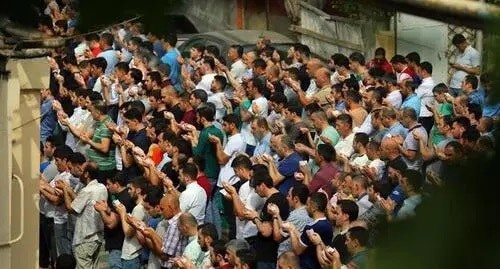
27 October 2021, 13:18
Analysts explain wave of persecution of Shiites in Azerbaijan
Shiite theologians are being persecuted in Azerbaijan because of the mistakenly formed stereotype about their pro-Iranian viewpoints, the analysts interviewed by the "Caucasian Knot" believe.
The "Caucasian Knot" has reported that on October 19, in Azerbaijan, law enforcers detained Haji Ilgar Ibragimoglu, a Shiite theologian and the head of the news website deyerler.org; after being interrogated as a witness, he was released. On the same day, the following members and supporters of the public association "Spiritual Figures of Azerbaijan" were detained: Sardar Babaev, Gadir Mamedov, Djalal Shafiev, Ali Musaev and Tamkin Djafarov. On October 25, it became known about the detention of Akhliman Rustamov, another Shiite theologian, a former Akhund of the "Haji Djavad" Mosque; he was released on the same day without any charge. The activists interviewed by the "Caucasian Knot" have suggested that authorities are using the tensions in Azeri-Iranian relations to put pressure on Shiites.
The prevailing stereotype that Shiite theologians, priests and other believers, who strictly observe religion norms, are pro-Iranian is erroneous, Tofig Tyurkel, an observer on religious issues of the "Turan" News Agency, told the "Caucasian Knot" correspondent.
In his opinion, the orientation of Azerbaijani believers towards mujtahids should not be regarded as a political orientation towards the Iranian state. "This is a purely religious orientation. Perhaps Iranian state bodies are using this factor to promote their interests. However, it's wrong to treat all those who perceive Iranian mujtahids as a certain Iranian 'fifth column' in Azerbaijan," Mr Tyurkel believes.
Zardusht Alizade, a political analyst and Orientalist, believes that the problems in Azerbaijani-Iranian relations have to do with certain "paradigms" in the countries' policy towards each other.
After the collapse of the USSR, Azerbaijan expected that Iran would not religiously affect the republic, which had lived for 70 years under the atheistic communist regime, but very soon realized that this was not so, Mr Alizade has noted. "Therefore, today, such a large Shiite state as Iran is in a certain sense playing the role of some spiritual and religious beacon for the Shiite population of Azerbaijan. Our government should understand this and admit that believers have the right to sympathize with Iran; and such people shouldn't be treated as the 'fifth column'," he said.
This article was originally published on the Russian page of 24/7 Internet agency ‘Caucasian Knot’ on October 27, 2021 at 01:58 am MSK. To access the full text of the article, click here.
Author: Faik Medzhid Source: CK correspondent




